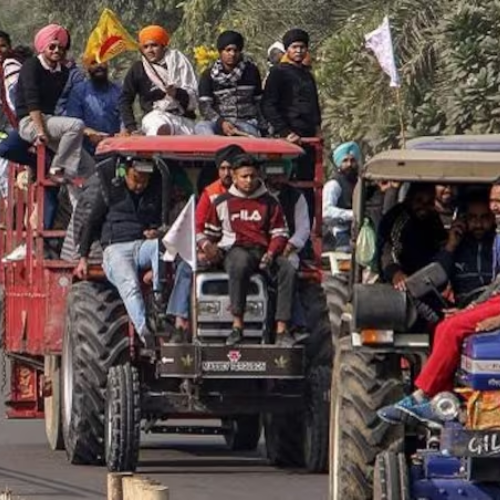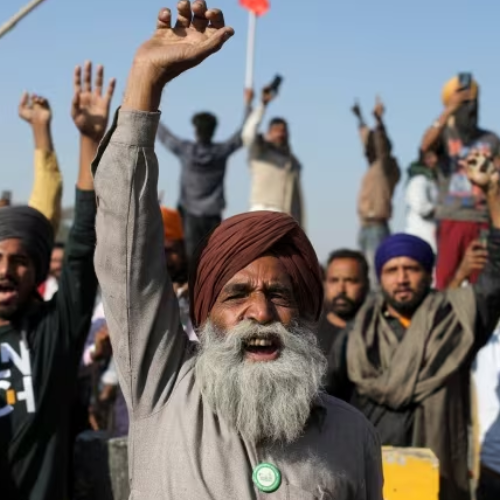In an attempt to end weeks of escalating tensions, the Indian government has offered guaranteed support prices for corn, cotton, and pulses to protesting farmers. This proposal comes after clashes between security forces and demonstrators demanding reforms to agricultural laws.
Trade Minister Piyush Goyal announced the offer in the northern city of Chandigarh, detailing five-year contracts between government-backed cooperatives and farmers who diversify their crops. These contracts guarantee minimum purchase prices for toor dal, urad dal, masoor dal, and corn, with "no limit on quantity." Similar guarantees were extended to farmers who switch to cotton production.

This move signifies a potential turning point in the ongoing farmer protests that have gripped India since late 2020. Farmers have expressed concerns about the three new agricultural laws passed by the government, fearing they would weaken their bargaining power and leave them vulnerable to exploitation by corporations. The protests have seen thousands camped on the outskirts of Delhi, braving harsh weather and facing tear gas and water cannons.
The government's offer has been met with cautious optimism by some farmer unions, who are currently discussing the proposal amongst themselves. While acknowledging the potential benefits of guaranteed prices, concerns remain regarding the implementation details and the fate of the contentious farm laws.
This development comes ahead of crucial state elections and the 2024 general election, where Prime Minister Narendra Modi seeks re-election. The influential farmer bloc forms a significant voting demographic, and resolving the agricultural crisis is crucial for Modi's political aspirations.
While the future trajectory of the protests remains uncertain, the latest offer presents a glimmer of hope for a peaceful resolution. Whether the farmers accept the proposal and whether it sufficiently addresses their concerns will determine the effectiveness of this olive branch extended by the Indian government.

